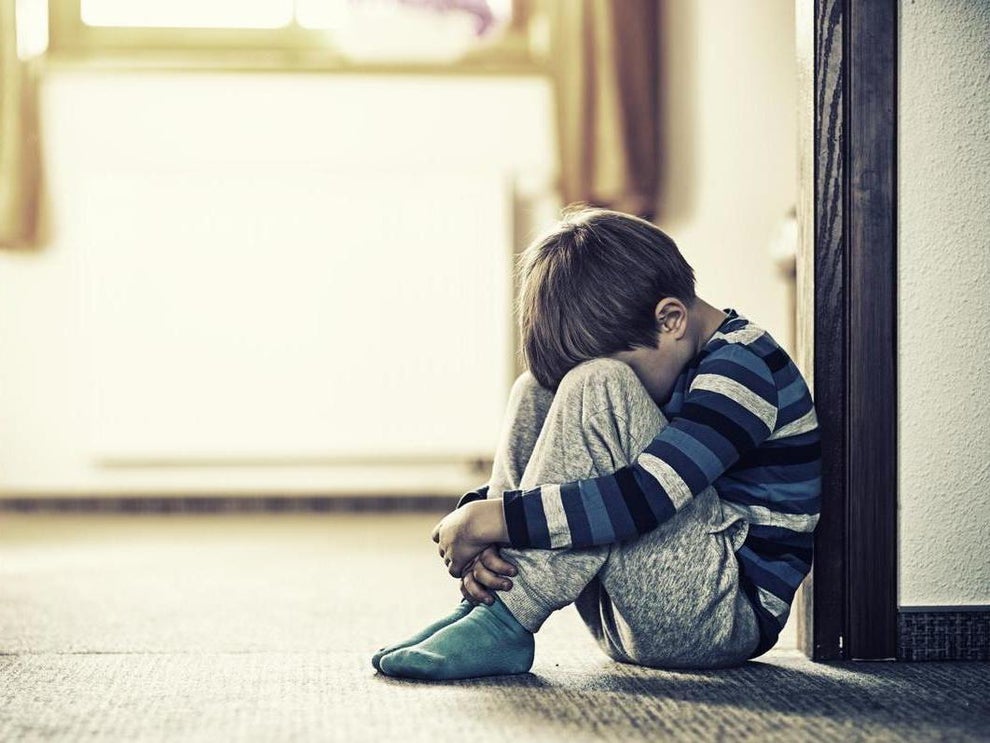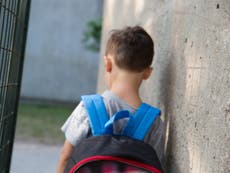Record number of children face domestic abuse this Christmas, warns charity
Children in crisis: Already sky-high numbers of child protection cases set to increase further as families feel financial and emotional strain of new coronavirus rules

Your support helps us to tell the story
From reproductive rights to climate change to Big Tech, The Independent is on the ground when the story is developing. Whether it's investigating the financials of Elon Musk's pro-Trump PAC or producing our latest documentary, 'The A Word', which shines a light on the American women fighting for reproductive rights, we know how important it is to parse out the facts from the messaging.
At such a critical moment in US history, we need reporters on the ground. Your donation allows us to keep sending journalists to speak to both sides of the story.
The Independent is trusted by Americans across the entire political spectrum. And unlike many other quality news outlets, we choose not to lock Americans out of our reporting and analysis with paywalls. We believe quality journalism should be available to everyone, paid for by those who can afford it.
Your support makes all the difference.A record number of children are likely to be exposed to domestic violence this Christmas, experts warn, as the new coronavirus restrictions push family tensions to tipping point.
The Early Intervention Foundation, a charity that supports children experiencing poor outcomes, estimates that more than 15,000 youngsters are at risk of witnessing or experiencing domestic abuse over the two-week Christmas period.
Social workers said many new cases were cropping up due to concerns about children’s safety within the home, while issues that emerged in the first lockdown and had been beginning to “iron out” were now resurfacing, as families feel the financial and emotional strain of the new rules.
Dr Jo Casebourne, chief executive of the Early Intervention Foundation, said pressures that come from families spending time together over the Christmas period would be “compounded” by the fact that they have often already spent months together under the same roof.
“We know that places pressure on families and we know that means conflict, abuse and neglect are more likely at this kind of time anyway even without the kind of year that we’ve had,” she added.
“And we know there’s a relationship between things like financial pressures and parental conflict. It makes it an environment in which domestic abuse is more likely to happen in.”
It comes after The Independent revealed last month that child protection referrals surged in the months following the UK’s first lockdown, with local councils reporting an increase in demand for mental health and family services.
Calls to the NSPCC’s helpline about children impacted by domestic abuse meanwhile increased by a third during the first wave, to an average of one every hour, with the charity receiving 1,500 contacts between 23 March and 17 May.
“Given the extra stress that’s been put on people since then, with the second lockdown and now changing plans over Christmas and so on, we can only assume things will get even worse,” Dr Casebourne added.
“Children are going to be less visible to professionals over these two weeks, so the kinds of professionals like teachers who can spot the subtler signs of abuse won’t be there.”
She called on ministers to “urgently” provide more investment into what is needed for victims, especially children, to overcome the trauma and rebuild their lives.
“It’s really important that we find out what works best for children who are victims of domestic abuse. The government has stated its commitment to tackling the issue, but ironically we still don’t know enough about what works to support these children to overcome that trauma,” she added.
Minny, a social worker in a London borough, said the concerns around child abuse in homes was already at a record high as a result of the previous lockdowns, but that the situation was now “at the tip and couldn’t get much worse”.
“Everyone is facing all the stresses. And sometimes where protective factors might be grandparents or places you can go to – all that’s now closed off again,” she said.
“A lot of children are saying they’re worried about money – an eight-year-old was telling me they were worried about money. That’s not something they should be worried about.”
The social worker said her team had received seven new cases last week – mainly for domestic abuse – which they had to take on despite all being at capacity.
“I wasn’t even meant to be in this week, but we had an emergency yesterday so I started working,” said Minny. “I feel anxious to have time off. When there are crises coming in I can’t just pretend I didn’t see it. There are more issues but fewer staff.”
Shadow children’s minister Tulip Siddiq called for a “relentless focus” by the government on identifying and supporting the children who are “hidden victims” of the pandemic, adding: “The pressures of a Christmas lockdown are likely to put vulnerable children at even greater risk of abuse, and thousands will be suffering in silence this winter.”
It comes after research by the Institute of Health Visiting found that four in five health visitors had reported a rise in domestic violence and physical abuse during the pandemic, while nearly two in three health visitors had reported a rise in cases of child neglect.
Health visitors said they were concerned that the needs of vulnerable babies and young children had dropped out of sight as they were able to focus only on what felt like the “tip of a very large iceberg” amid increasing caseloads and fewer face-to-face contacts.
A government spokesperson said: “Home should be a place of safety, but we know that sadly for some children this is not the case.
“That’s why we have invested millions in support for vulnerable children and survivors of domestic abuse during the pandemic, including £3m for specialist services to help children who have been affected by this move towards a more positive future.
“We have also made £4.6bn available to councils to tackle to pressures they face at this time, with a further £1.55bn for next year, and we’re bringing back thousands of social workers onto a temporary register to help where needed. This, alongside our bold, independently-led care review, will support improvements in the children’s social care system.”




Join our commenting forum
Join thought-provoking conversations, follow other Independent readers and see their replies
Comments